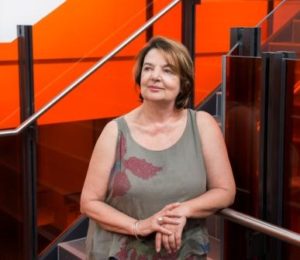
Understanding how children think and learn about science and mathematics is fundamental to the design of curriculum, instruction and intervention, Flinders University’s new Strategic Professor in Education Stella Vosniadou says.
With an extensive background in cognitive developmental psychology, Professor Vosniadou’s research shows that children learn through a complex constructive process, which has potential implications for their comprehension of scientific and mathematical concepts.
“Children draw on prior knowledge to build new knowledge but in science and mathematics, the information children are exposed to often contradicts their prior knowledge, which is why it’s very common for children to make learning mistakes in science and mathematics,” Professor Vosniadou, who arrived from the National and Kapodistrian University of Athens last month, says.
“My theory is that these mistakes are attributed to children actively trying to build scientific knowledge based on what they know, but because their prior knowledge is inconsistent with new scientific information, they create misconceptions,” she says.
“For example, some of my studies into childrens’ mental models of the earth and of the day/night cycle showed that by the time children get to school, they have already formed a basic understanding of the world based on their observations.
“If you asked them to explain the day/night cycle they’d say the sun goes behind the mountains or the sea because they can see it, but at school they get told the day/night cycles happens because the earth is a planet that turns around itself as it revolves around the sun.”
Professor Vosniadou says children who are more successful in science and mathematics have “higher executive function skills”, which is a set of abilities that allows them to change and restructure their prior knowledge.
“These children have the cognitive flexibility to switch between new and old ways of thinking, which is why it’s important to build curriculum and instruction that supports both constructive and self-reflective learning.”
Professor Vosniadou accepted the academic appointment at Flinders after 22 years at the University of Athens, where she worked in various professorial positions within the Department of Elementary Education and, since 1995, in the Department of Philosophy and History of Science.
She says she is keen to enhance Flinders research program by focusing on learning environments that promote learning.
“Part of the reason I’m here is to build the research culture; to encourage young and old to build collaborations and actively engage in research.
“I want to encourage researchers to apply for grants and if I can find the funding and the circumstances allow it; I’d eventually like to build a centre for the study of learning and teaching.
“The School of Education is growing very fast and it’s a very exciting place to work.”

